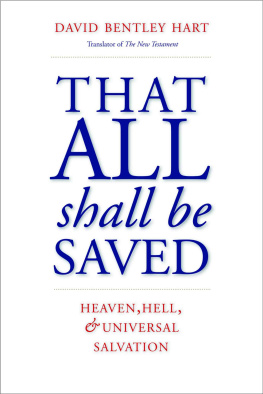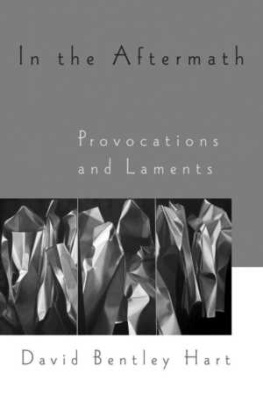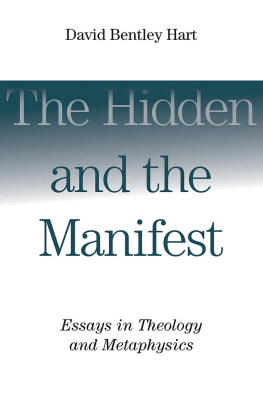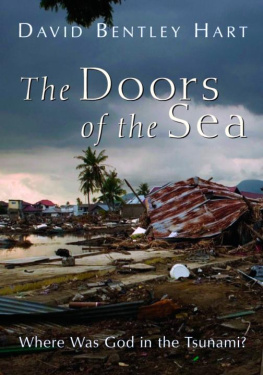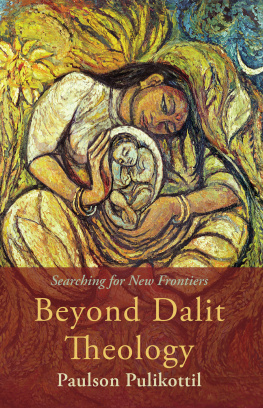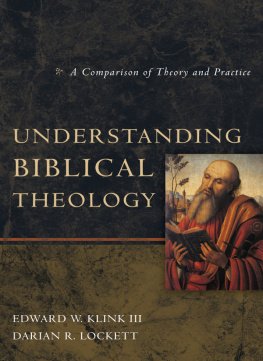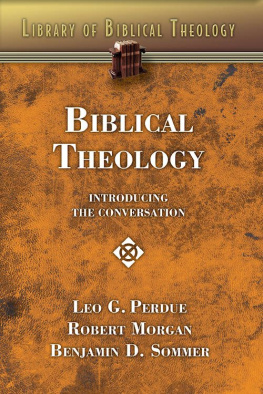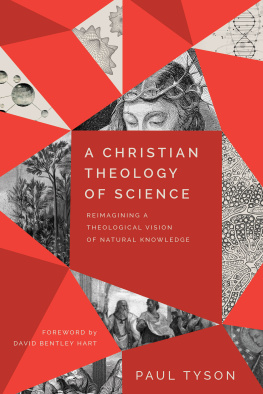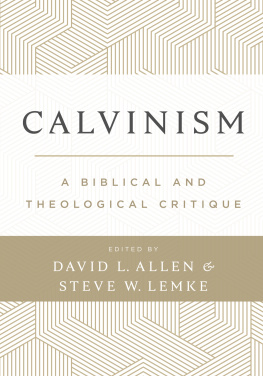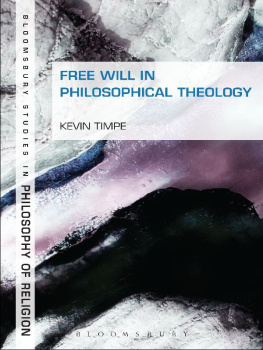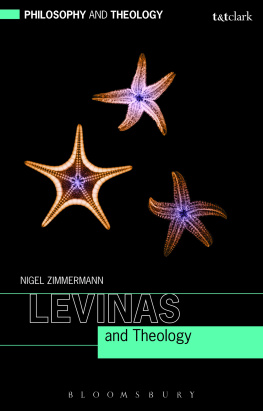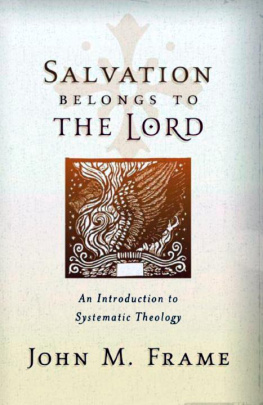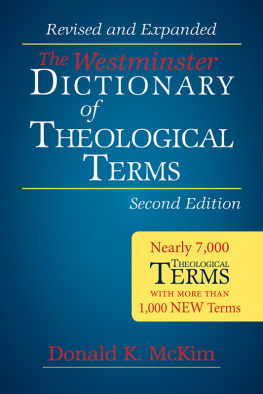THEOLOGICAL TERRITORIES
DAVID BENTLEY HART
University of Notre Dame Press
Notre Dame, Indiana
Copyright 2020 by David Bentley Hart
Published by the University of Notre Dame Press
Notre Dame, Indiana 46556
undpress.nd.edu
All Rights Reserved
Published in the United States of America
Library of Congress Cataloging-in-Publication Data
Names: Hart, David Bentley, author.
Title: Theological territories : a David Bentley Hart digest / David
Bentley Hart.
Description: Notre Dame, Indiana : University of Notre Dame Press, [2020] |
Includes index.
Identifiers: LCCN 2019054882 (print) | LCCN 2019054883 (ebook) | ISBN
9780268107178 (hardback) | ISBN 9780268107185 (paperback) | ISBN
9780268107208 (adobe pdf) | ISBN 9780268107192 (epub)
Subjects: LCSH: Theology. | Philosophical theology. | Bible. New
TestamentCriticism, interpretation, etc. | BibleTheology.
Classification: LCC BR118 .H3646 2020 (print) | LCC BR118 (ebook) | DDC
230dc23
LC record available at https://lccn.loc.gov/2019054882
LC ebook record available at https://lccn.loc.gov/2019054883
This e-Book was converted from the original source file by a third-party vendor. Readers who notice any formatting, textual, or readability issues are encouraged to contact the publisher at
for
John and Laura Betz
CONTENTS
ACKNOWLEDGMENTS
My thanks to all the persons and institutions (recorded in the Introduction below) who originally provided the occasions forand usually the topics ofthese pieces. My gratitude also to the Notre Dame Institute for Advanced Study and its four permanent denizens over the three years of my association with itBrad S. Gregory, Donald Stelluto, Carolyn Sherman, and Grant Osbornfor granting me the time and space in which to pursue my work and to join in a great many of the conversations that generated a number of these pieces; and many thanks to the McGrath Institute for Church Life for a semesters hospitality during my tenancy at Notre Dame. I am grateful as well to Roberto de la Noval for preparing the index to this volume, a task for which I am temperamentally and probably morally unsuited.
INTRODUCTION
The large preponderance of the pieces gathered here are texts of live addresses delivered in various settings, and so have never before been published. The few that remain have appeared in print previously but are given here in alternative (and more authoritative) form, restoring material that originally had to be omitted for reasons of space; their claim to a place in this collection is that they, like the others, were written as occasional meditations, on topics usually assigned by others, without footnotes, and almost all of them were also at various points delivered as lectures or private talks; and yet, curiously enough, they fill in certain crucial dimensions of my thinking over the past several years. Like most scholars who have been at their work for any appreciable stretch of years, I find that I have committed a great many of my ideaseven some of the better ones, I thinkonly to public lectures, or to public remarks on the work of other scholars. In many cases, moreover, those ideas are expressed more concisely and with greater clarity than they might have been in the context of a large written text. A single address written to be delivered live belongs to a special genre, one that imposes certain exigencies on its author. One does not enjoy the liberty of extending ones exposition beyond the scope of, say, an hour (or forty-five minutes, if one is merciful), but neither can one curtail ones remarks before reaching some kind of satisfying conclusion. It is a usefully severe discipline, especially if one hopes to say anything of consequence in the time allotted. The result, if one succeeds in ones aims, can be a degree of economy and lucidity that the greater freedom of a longer text might actually discourage or thwart. But for the pitiless relentlessness of the clock on the wall, one might never strive for the kind of crystalline exactitude that becomes necessary when one can say no more than what must be said to communicate ones meaning within an unforgivingly fixed span.
All of this having been noted, the first chapter in this collection was in fact written initially as an essay and was published as an article in a symposium on Rowan Williamss darkly scintillating book The Tragic Imagination , in Modern Theology (April 2018), in a somewhat shorter version than the text given here; only in a revised form was it delivered as a public lecture (at Canisius College in Buffalo, New York, in March 2018). I like to think that it is a fairly accomplished piece, structurally and stylistically at least, and that it makes an argument of some subtlety. That does not mean, however, that I can claim that its argument has proved quite as clear to every reader or listener as I might have hoped. In general, this has been my experience whenever I have addressed this topic. When I wrote on the relation of tragedy and theology in my first book, some years ago now, I found myself on more than one occasion being accused of disliking tragedy as a dramatic form. In point of fact, I am, if anything, excessively attached to it. My objection to tragic theology, back then and in this present piece, is partly the result of my belief that this style of theology has the effect of distorting and even obscuring something strange, crucial, and unprecedented in the Christian story; but it is no less the result of my indignation at the ways in which some of the tragic theology I have encountered in the past has almost invariably (as far as I can see) stripped tragic art of its true mystery, variety, and beauty and contracted it to a banal set of platitudes regarding hope despite uncertainty, hope despite suffering, hope despite the impenetrable darkness, hope despite... Happily, Williamss book breaks from that reductive pattern. Like everything he writes, it is marked by an extraordinary degree of tact and penetrating intelligence. My essay is in one sense a reaction to his book, and partly to certain mild remarks it directs toward my earlier writing on the matter (as well as remarks not quite as mild made by Williams in a public lecture that I watched online); but it is more essentially a larger meditation on the nature of the Christian story, and on the relevance of tragic art to our understanding of that story. My approach to the matter might be said to be more or less the opposite of Williamss, but I prefer to think of it as complementary. As I say in my essay, my concern is not so much to contest his claims regarding what tragedy has the power to reveal about reality but rather to ask whether he neglects adequately to consider what tragedy has the power to conceal. And, I confess, his sympathy for Hegels reading of Attic tragedy is one I cannot share; I have always found Hegels treatment of, say, Antigone deeply depressing, for the admittedly petty reason that it spoils the play for me, by turning it into what looks to me like a bourgeois morality tale, and thus robbing it of its terrifying pagan grandeur (but I deal with that in the essay).
I should note, by the way, that Williams offers some responses to my essayand to several others also concerned with his bookin that same issue of Modern Theology ; his remarks are well worth consulting and are probably wiser than my cavils regarding his argument. Here I will mention only that he arraigns me for perhaps falling prey to a certain essentialism regarding tragedy. He may be right. As a rule, that would not be a charge that would bother me very much, since it is one that can usually be deflected with little more than a languid wave of the hand and a surly tu quoque ; anything to which we apply a general nameanything we situate in a particular categoryis likely to be something we identify by certain essential qualities, and none of us can wholly escape his or her own generalizations. As far as I know, however, apart from some specific observations on the cultic context of Attic tragedy, my only intentional general characterization of tragedy as a genre or natural kind is in terms of the special affective power that it possesses: it excites a peculiar kind of pathos, one that occupies a particular place along the emotional spectrum. Ideally, tragedies are sad, comedies amusing, and so forth. Admittedly, I also advert to a certain somnifacient virtue in tragedy well performed, but that seems like a harmless rhetorical conceit to me. Even so, I do not dismiss Williamss criticism, and I fully grant that nothing I say in my essay should be taken as the sole correct account of the tragic, and I definitely do not mean to suggest that Williamss account is somehow objectively wrong. His is a rich and somewhat troubling meditation upon this most mysterious of dramatic forms, and one of considerable originality. It has made me think many issues over again (but still, so to speak, on the obverse).
Next page

